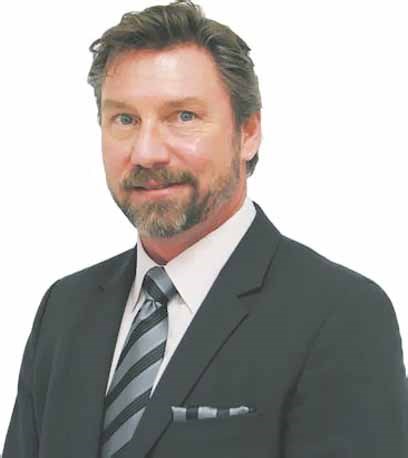The work of Physician Recruitment Agency of Saskatchewan (PRAS), is beginning to pay dividends for the province.
That was the message from PRAS CEO Edward Mantler who met with local media last week on a day he was also meeting with representatives of the Sunrise Health Region.
"We have more doctors in Saskatchewan than ever before," he said, adding since the launch of PRAS in 2010 some 300 doctors have come to the province "the vast majority being family physicians for rural Saskatchewan."
Mantler said the mandate of PRAS is to work to retain existing physicians, and to recruit new ones in the province, adding to accomplish those goals they need to work with the health regions.
"We work in partnership with Sunrise Health Region, and all of the health regions in Saskatchewan," he explained.
In terms of recruitment, Mantler said PRAS is taking a multi-pronged approach, starting with working with the University of Saskatchewan to keep more graduates of its program here in the province.
"We are working very, very closely with students in residence at the U of S," he said.
Mantler said typically only about 50 per cent of graduating doctors from the U of S have stayed to practice in the province.
It is hoped by working with students, including providing interactions with rural practices, that more will be enticed to stay. As an example second year students can take part in a 12-week program "to work side-by-side with practicing physicians," mostly in rural areas.
The idea, said Mantler is to increase awareness of what a rural practice in Saskatchewan can offer physicians. He said research supports the idea that the more positive experiences a students has with rural practices through their training, the greater the likelihood they take that as a career choice.
The efforts seem to be paying off as preliminary numbers for graduates in 2013, and this spring, have a retention rate closer to 65 per cent.
Mantler added that because only one-in-four qualified applicants to get into a medical school in Canada is accepted, many Canadian students study abroad, particularly in Ireland, Australia and the Caribbean. PRAS has selected four of the top medical schools where Canadians study, and are working on programs to have those graduates return to Canada, and Saskatchewan post-graduation to practice.
PRAS also looks across the rest of Canada, and abroad for recruitment, said Mantler, who added they have the ability to promote the entire province and what it has to offer.
"We can promote the province as a whole," he said. "We can talk about Saskatchewan as a whole."
In the recent past immigrant doctors were only recognized from a handful of British Commonwealth nations. But the creation of the Saskatchewan International Physician Practice Assessment Program (SIPPA), has greatly aided recruitment efforts, said Mantler.
The Saskatchewan International Physician Practice Assessment (SIPPA) is the new process for assessing family medicine International Medical Graduates' (IMGs) readiness to practice in Saskatchewan. The assessment will ensure that family medicine IMGs have the appropriate mix of academic knowledge, technical skills, and clinical judgement to provide safe patient care.
As of January 1, 2011, all IMGs will be required to take this Saskatchewan-based assessment before practicing in the community to which they were recruited.
Mantler said doctors can now be recruited from far more countries, with the training, education and other attributes measured through SIPPA.
Interestingly, Mantler said the urban legend of doctors moving to Canada from other countries and ending up driving cabs and delivering pizza because their credentials were not accepted has proven true. As a result many doctors having gone through SIPPA have been in Canada already.
PRAS also attends events abroad, including on Ireland and Dubai as part of the recruitment strategy. Mantler said the Dubai event has helped attract doctors from Iran, Iraq and Egypt.
SIPPA has three sessions a year, each taking in 30 physicians. Mantler said 75 per cent are successful in completing the SIPPA assessment to practice in the province.
The strategies have things looking good, said Mantler, noting with the next SIPPA assessment group, and the 2014 graduates from the U of S, the province will be very close to its physician goal, adding the work is then about retaining those physicians.




